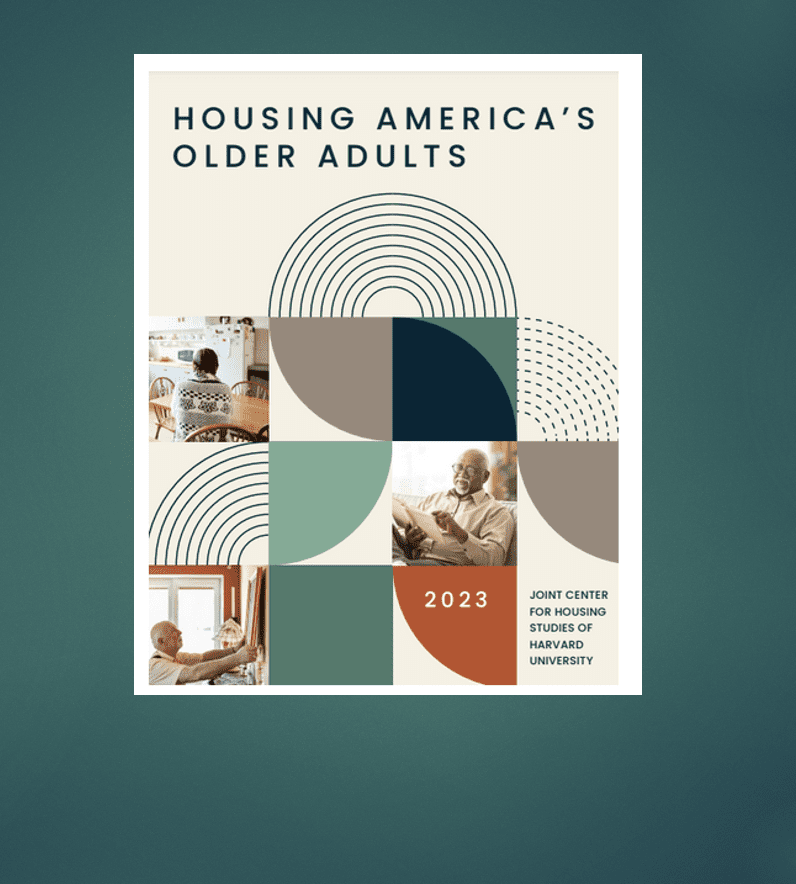Search Posts
Recent Posts
- We Cook! Mill’s Tavern Herb-crusted Pork Tenderloin, Spring Panzanella, Sauce May 15, 2025
- RI Veterans: Did you know? 15.05.25 (Golf for Vets, homeless vets program, events) – John A. Cianci May 15, 2025
- 11th Hour Racing awards ACT $150,000 for a stronger food system on Aquidneck Island May 15, 2025
- Rhode Island Weather for May 15, 2025 – Jack Donnelly May 15, 2025
- Keeping divisiveness alive a sport in Providence – and a hurtful one for the Mayor, and the city May 15, 2025
Categories
Subscribe!
Thanks for subscribing! Please check your email for further instructions.

Report says nation not prepared to tackle senior housing crisis – Herb Weiss
by Herb Weiss, contributing writer on aging issue
With the graying of America, the nation is unprepared to provide needed housing and care for millions of seniors, warns a recently released 40-page report by the Cambridge-based Harvard Joint Center for Housing Studies. The US population age 65 and over has skyrocketed 34% in the last decade, from 43 million in 2012 to 58 million in 2022. This growth is widespread, with urban, suburban, and rural communities across the country reporting increases in older residents, notes the report released on Nov. 30, 2023.
The report’s authors noted that over the same period, the share of households headed by older adults increased from 22 to 27% of all U.S. Households. The number of households headed by a person aged 80 and over will more than double between 2021 and 2040 to reach nearly 17 million households.
Key takeaways of Harvard’s Housing Report
According to the report, “Housing America’s Older Adults 2023,” as the nation’s population of older adults swells, so, too, does demand for housing that is both affordable and able to accommodate older adults’ changing [health care] needs.
Accessible housing is also in short supply, say the authors, noting that fewer than 4% of US homes offered the three key features of accessible housing—single-floor living, no-step entries, and wide hallways and doorways—at last measure.
As the US population ages, more older adults will struggle to afford either the home of their choice or the care they need, warns the report. “With subsidies for housing and LTC services scarce, many older adults will have to forgo needed care or rely on family and friends for assistance,” says Jennifer Molinsky, Project Director of the Housing an Aging Society Program at the Center. More funding would be a start, but there is tremendous need for creative alternatives to existing models of care and housing to better support the country’s rapidly aging population,” suggests the report.
The report noted that seniors, whose incomes are often fixed or declining, increasingly face the “twin challenges” of finding affordable housing and the health care services they need to remain independent and at home. In 2021, an all-time high of nearly 11.2 million older adults were cost burdened, meaning they spent more than 30 percent of their income on housing. Cost burdens are particularly high for renters, homeowners with mortgages, and households aged 80 and over, the report emphasized.
Costly long-term care (LTC) is out of reach for most seniors, the authors noting the cost of LTC averaging over $100 per day, nationwide. They say that most seniors who require these services, having very low incomes, have the fewest resources to pay for them. When LTC services are combined with housing costs, only 14% of single people 75 and over can afford a daily visit from a paid caregiver, and just 13% can afford to move to assisted living.
The researchers say that government-funded rental assistance can provide crucial support to older adults with very low incomes, but demand dramatically outstrips supply. With homelessness on the rise among the older population, assistance is more important than ever, they add. Even those with slightly higher incomes also struggle to qualify for government assistance; 29% of people living alone, aged 75+, have incomes above 50% of area median income, but cannot afford the cost of assisted living. Just 8% of this group could afford a daily visit from a home health aide, the report found.
Equity in housing as we age
The report also found that renters and homeowners of color face steeper burdens, too, in paying for housing. While some older adults have home equity that can be tapped to pay for care or services, many do not. “This is not only because of the increasing number of older adults, but because of widening wealth and income inequality,” says Jennifer Molinsky, Project Director of the Housing an Aging Society Program at the Center, in a statement released on Nov. 30, 2023. She served as the report’s lead author.
Older renters have only 2% of the net wealth of older homeowners and there are steep inequalities among owners as well; older Black homeowners have the lowest housing equity at $123,000, compared to $251,000 for older white homeowners, $200,000 for older Hispanic owners, and $270,000 for older owners who are Asian, multiracial, or another race, say the authors.
The report’s findings indicated that mortgage debt among older adults is rising, noting that between 1989 and 2022, the share of homeowners 65 to 79 with a mortgage increased from 24 to 41%, and the median mortgage debt shot up over 400%, from $21,000 in 1989 to $110,000. Over 30% of homeowners age 80 and over are also carrying mortgages, up from just 3% three decades ago.
“Borrowing is often a way for older homeowners to access cash for basic needs or care,” says Chris Herbert, Managing Director of the Center. “Given the importance of housing equity later in life there is a real need for safe and affordable mortgage products that work for older owners with limited incomes,” says Herbert.
The report’s authors suggested that financing incentives could provide better opportunities for those who wish to remain in their communities, but in more suitable homes; this would be particularly welcome in rural and other low-density areas where the choices are especially limited.
Climate change impacts housing
Finally, the growing threat of climate change is impacting older homeowners. The report’s authors noted that some states long favored by older adults because of their warmer weather are increasingly experiencing extreme heat and harsh storms. In addition to health risks, property damage is a rising concern, particularly for the increasing number of older people without insurance. “Severe storms in Florida caused $228 billion in property damage from February 2020 through April 2023, a state that is home to 8.3% of the nation’s older population,” says the report.
Tackling the senior housing crisis in Rhode Island
“Accessibility and affordability of housing has reached a crisis level, impacting all age groups. This excellent report from the Joint Center for Housing Studies at Harvard University confirms that the impact on older Americans is particularly acute. That is why my focus on housing issues is at the top of my agenda, and why I am fighting so hard to pass legislation encouraging the development of accessory dwelling units (ADUs), the number one priority of AARP. The Harvard study makes it very clear that the need for housing and housing-based care for older adults is growing at an alarming rate, and in Rhode Island, I am dedicated to increasing the availability of suitable housing opportunities for our older residents,” says House Speaker K. Joseph Shekarchi (D-Dist. 23, Warwick).
“The housing report provides comprehensive information on the significant challenges related to the housing needs of older adults. The challenges in Rhode Island are amplified by an old housing stock usually lacking accessibility features and our low rate of housing production,” says Maureen Maigret, policy advisor for the Senior Agenda Coalition of RI.
Maigret, a former Director of the former Department of Elderly Affairs, identifies one particularly relevant section of Harvard’s Housing Report that discusses dual problems faced by older adults with both housing and support needs and how few have the financial means to pay for both housing and even a small amount of home care. This is important for Rhode Island with its high costs for long term care and a growing older population.
The Senior Agenda Coalition of RI (SACRI) applauds House Speaker Shekarchi and so many members of the legislature, specifically for their intense efforts to address the state’s housing needs, says Maigret. “We support the Governor’s budget proposal for a $100 Million Affordable Housing Bond issue but recommend the amount be increased along with an increase in the suggested amount of funds for priority projects for vulnerable populations including economically struggling seniors from just $7.5 Million of the bond dollars,” she says.
SACRI also supports legislation to ease development of ADUs, proposals that include accessibility features in new housing production, continuing the state Home Modification grant program and increasing the income cap for the state Property Tax Relief program, a program that helps both older homeowners and renters) to $50,000,” she says.
ADUs and the Ocean State
Last week, Senator Victoria Gu (D-Dist. 38, Westerly, Charlestown, South Kingstown) introduced S. 2630, that would allow homeowners to develop an accessory dwelling units (ADU) within the existing footprint of their structures by right, or build an attached or detached ADU if the lot is large enough. This is the companion bill to the one introduced in the House.
ADUs, sometimes referred to as in-law apartments, backyard cottages or “granny flats”, are accessories to existing housing, created as a conversion of part of a house (such as a walkout basement), an attachment to a house, a garage conversion, or a smaller, detached dwelling. They have become increasingly popular around the country in recent years as states and municipalities balance the need to create more housing with preserving the character of residential neighborhoods.
Seniors, especially, have taken to ADUs as a way to downsize while continuing to stay independent in the community. Now the Senate is poised to pass legislation to boost ADU development.
S. 2630 is similar to H 7062, sponsored by Rep. June S. Speakman (D-Dist. 68, Warren, Bristol) which passed the House on Feb. 14, but it differs primarily in how it allows municipalities to apply several code regulations.
If the Senate passes an ADU bill this year, lawmakers will have an opportunity to reconcile the two bills, either passing the house or senate version, or reconciling them somewhere in the middle, or making changes that aren’t in either. Lawmakers must now compromise, on behalf of their older constituents to hammer out legislation for Gov. Dan McKee to sign into law. This would be a first step in tackling the Senior housing crisis in Rhode Island. It’s a no brainer – and passing it this year is critical to addressing the crisis in housing.
For a copy of Harvard’s Housing report, go to https://www.jchs.harvard.edu/housing-americas-older-adults-2023.
To get key facts from Harvard’s Housing report, go to:
___
To access all of Herb’s articles published by RINewstoday, go to https://rinewstoday.com/herb-weiss/

Herb Weiss, LRI -12, is a Pawtucket-based writer who has covered aging, health care and medical issues for over 43 years. To purchase his books, Taking Charge: Collected Stories on Aging Boldly and a sequel, compiling weekly published articles, go to herbweiss.com.


